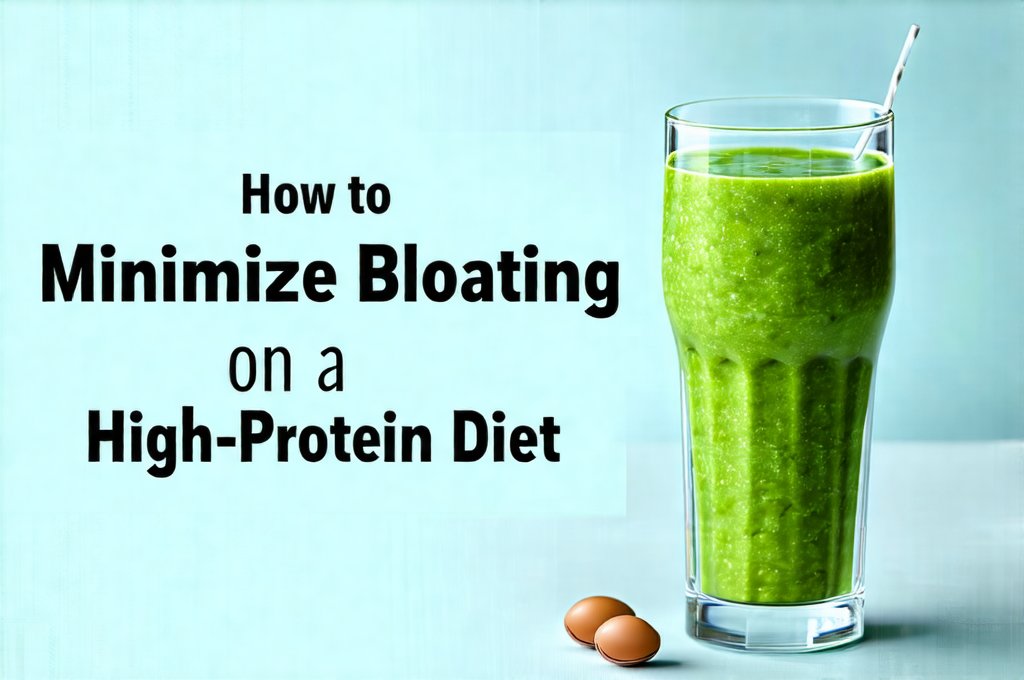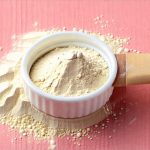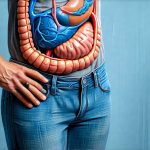Many people embrace high-protein diets for various reasons – muscle gain, weight management, improved satiety, or simply a lifestyle choice. While undeniably beneficial for numerous aspects of health, these diets can sometimes come with an unwelcome side effect: bloating. This isn’t necessarily indicative of something wrong; rather, it’s often a natural physiological response to dietary changes and the way our bodies process increased protein intake. Understanding why this happens is the first step toward mitigating it, and thankfully, there are many strategies available to enjoy the benefits of a high-protein diet without the discomfort of excessive bloating.
Bloating on a high-protein diet isn’t always about the protein itself, but rather what accompanies it – changes in fiber intake, hydration levels, gut microbiome shifts, and even the sources of protein chosen. It’s also vital to remember that everyone reacts differently; what causes bloating for one person might not affect another. This article will delve into the common reasons why high-protein diets can lead to bloating, providing practical, evidence-based strategies to minimize discomfort and optimize your digestive health while still reaping the rewards of a protein-rich lifestyle. We’ll cover everything from food choices and hydration to digestive support and mindful eating practices.
Understanding the Root Causes of Bloating
Bloating associated with high-protein diets is multifaceted; it’s rarely due to one single factor, but rather a combination of physiological responses. Protein digestion itself requires more water than carbohydrate or fat digestion. When sufficient water isn’t consumed, this can lead to constipation and subsequent bloating. Furthermore, the increased nitrogen load from protein metabolism puts extra stress on the kidneys, requiring adequate hydration for efficient waste removal. Insufficient fiber intake – often a consequence of focusing heavily on protein sources – exacerbates constipation and contributes to gas production as undigested food ferments in the colon.
Another significant factor is gut health. A sudden increase in protein can alter the composition of your gut microbiome, potentially favoring bacteria that produce more gas. Some high-protein foods themselves, like beans and lentils (though excellent sources of protein), contain galacto-oligosaccharides (GOS) – complex carbohydrates that are difficult to digest and fermented by gut bacteria, leading to bloating. Similarly, certain animal proteins can be harder for some individuals to break down completely. Finally, lactose intolerance or sensitivity, often undiagnosed, can be triggered or worsened when combined with a high-protein diet if dairy products are a significant protein source.
It’s important to distinguish between typical post-meal fullness and actual bloating. Fullness is normal after eating; bloating involves noticeable abdominal distension, discomfort, and potentially gas. If bloating is severe, persistent, or accompanied by other symptoms like pain, diarrhea, or weight loss, it’s crucial to consult a healthcare professional to rule out underlying medical conditions. Learning how to track progress can help you identify triggers and patterns.
Optimizing Protein Sources & Dietary Choices
The type of protein you consume matters significantly when aiming to minimize bloating. Leaner protein sources are generally easier to digest than fattier cuts of meat. For example, grilled chicken breast is less likely to cause digestive distress compared to a heavily marbled steak. Similarly, choosing fish – especially those rich in omega-3 fatty acids – can be beneficial, as these fats have anti-inflammatory properties that support gut health. Plant-based proteins are also excellent options but require careful consideration.
- Prioritize easily digestible protein sources: Chicken breast, turkey, white fish, egg whites, Greek yogurt (if tolerated), and tofu.
- Limit processed meats: These often contain additives and high levels of fat that can contribute to digestive issues.
- Be mindful of legumes: If beans and lentils cause bloating, start with small portions and gradually increase intake while monitoring your body’s response. Soaking them overnight before cooking can also reduce their GOS content.
Furthermore, incorporating digestive enzymes into your diet – either through food sources (like pineapple or papaya containing bromelain and papain) or supplements – can aid protein breakdown and improve digestion. Focus on pairing protein with easily digestible carbohydrates like sweet potatoes or quinoa rather than heavily processed foods. Finally, remember that variety is key; diversifying your protein sources provides a range of nutrients and reduces the risk of developing sensitivities to specific foods. If you find yourself needing to adjust your diet significantly, it can be helpful to explore how to maintain variety even with restrictions.
Hydration: The Cornerstone of Digestive Comfort
As mentioned earlier, adequate hydration is absolutely critical on a high-protein diet. Aim for at least half your body weight in ounces of water per day, but adjust based on activity level, climate, and individual needs. Dehydration slows down digestion, leading to constipation and bloating. Water helps move food through the digestive tract efficiently, reducing fermentation and gas production. It also supports kidney function, aiding in the elimination of nitrogenous waste products from protein metabolism.
Beyond plain water, consider incorporating hydrating foods into your diet – cucumbers, watermelon, celery, and leafy greens are all excellent choices. Herbal teas (like peppermint or ginger) can also soothe digestive discomfort. Avoid sugary drinks and excessive caffeine, as these can dehydrate you further and potentially irritate the gut. Pay attention to your body’s signals; thirst isn’t always a reliable indicator of hydration status, so sip water throughout the day even if you don’t feel thirsty. If you struggle with bloating generally, understanding how to avoid bloating can offer valuable insights.
Fiber: Balancing Act for Digestive Health
Fiber is essential for digestive health, but finding the right balance on a high-protein diet can be tricky. While protein itself doesn’t contain fiber, many common protein sources – especially animal products – are devoid of it. A sudden reduction in fiber intake when transitioning to a high-protein diet can lead to constipation and bloating. However, excessive fiber intake too quickly can also cause gas and discomfort.
The key is gradual incorporation of fiber-rich foods alongside your protein intake. Excellent sources include:
1. Low-FODMAP fruits and vegetables (berries, bananas, carrots, spinach)
2. Whole grains like quinoa and oats (in moderation)
3. Chia seeds and flaxseeds (add to smoothies or yogurt)
Start with small portions of fiber-rich foods and gradually increase intake over several days or weeks, allowing your gut microbiome time to adjust. Always pair increased fiber intake with adequate hydration; otherwise, it can worsen constipation. If you struggle with gas from high-fiber foods, consider experimenting with different types of fiber – some are more easily digestible than others. How to transition to a higher fiber diet should be done gradually.
Mindful Eating & Digestive Support
Finally, don’t underestimate the power of mindful eating and digestive support techniques. Eating quickly or while stressed impairs digestion, leading to bloating and discomfort. Take your time when eating, chew your food thoroughly, and focus on savoring each bite. This not only improves digestion but also promotes a greater sense of fullness, preventing overeating.
Consider incorporating practices like:
– Probiotics: Supplementation or consumption of fermented foods (yogurt, kefir, sauerkraut) can support a healthy gut microbiome.
– Ginger: Known for its anti-inflammatory and digestive properties, ginger can be consumed as tea, added to meals, or taken in supplement form.
– Peppermint oil: Can help relax the intestinal muscles and reduce bloating (consult with a healthcare professional before using peppermint oil supplements).
Regular physical activity also promotes healthy digestion by stimulating gut motility. Avoid lying down immediately after eating; instead, take a short walk to aid digestion. By adopting these mindful practices and digestive support techniques, you can significantly minimize bloating and enhance your overall well-being on a high-protein diet. Remember that consistency is key – small, sustainable changes are more effective in the long run than drastic overhauls. If chronic reflux is also an issue, it’s important to consider how to maintain a balanced diet alongside these strategies. Finally, for those with busy schedules, finding ways to eat gut friendly can make all the difference.


















